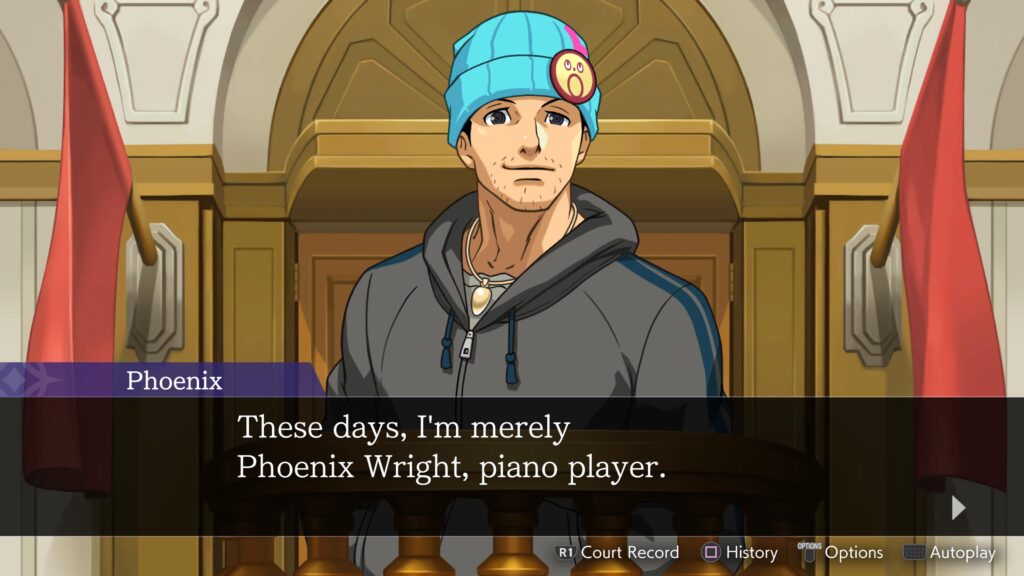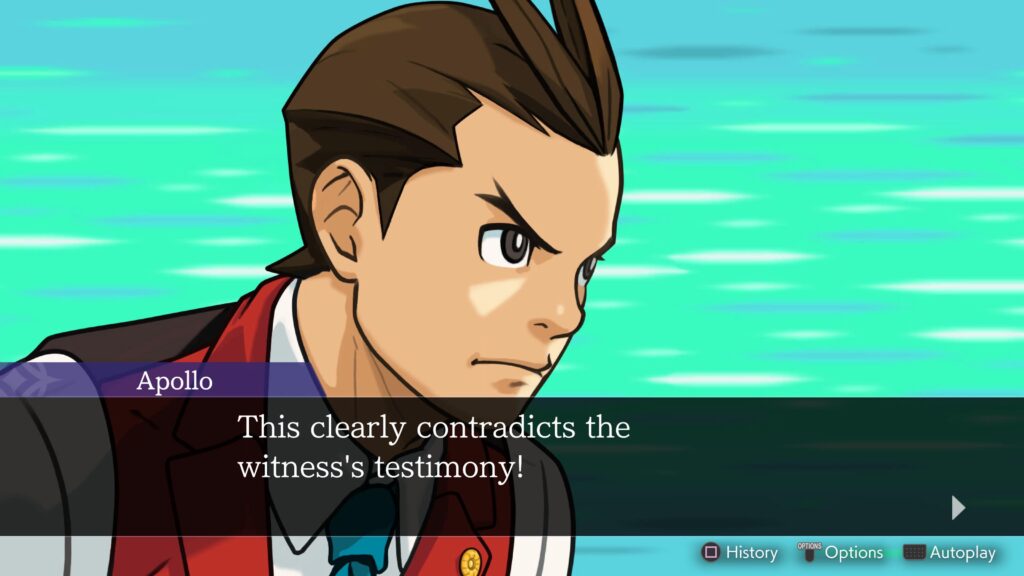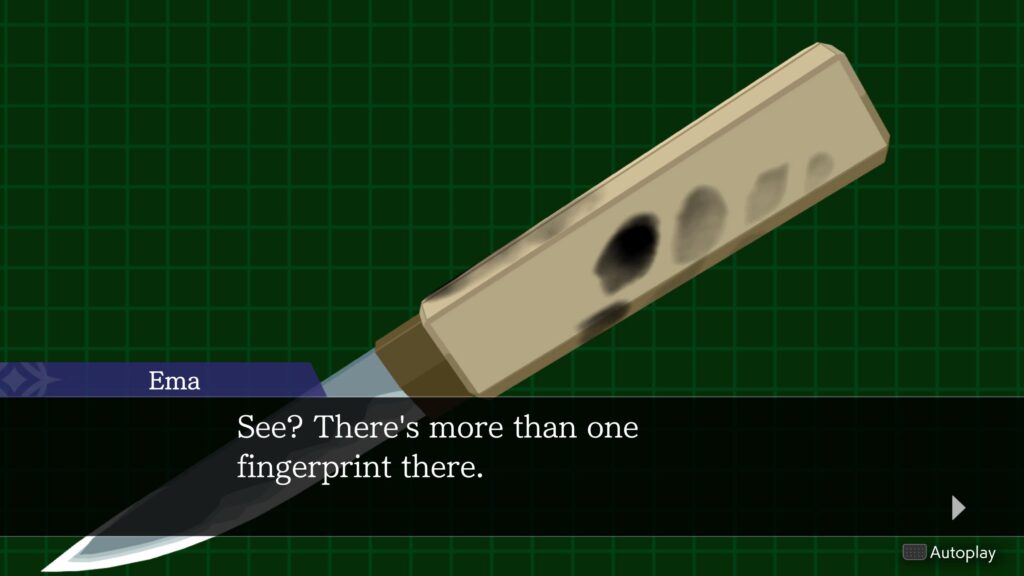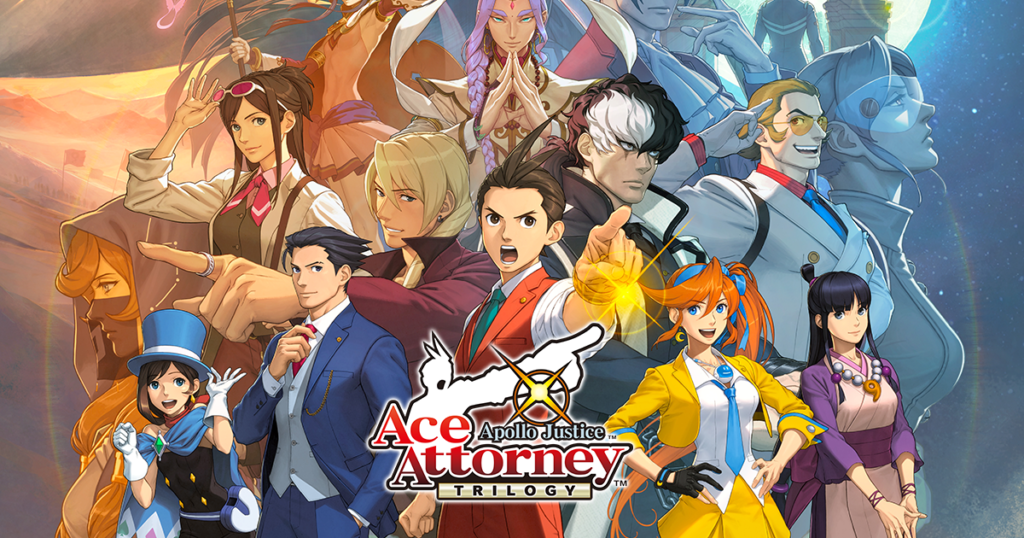CAPCOM’s latest remaster, Apollo Justice: Ace Attorney Trilogy, which features the acclaimed title Apollo Justice: Ace Attorney (2008) as well as its sequels, Dual Destinies (2013) and Spirit of Justice (2016), in glorious HD. The first was initially released on the Nintendo DS, with the latter two launching on the Nintendo 3DS years later. Now, for the first time ever, games four to six in the Ace Attorney series are available on PC, PlayStation 4, Xbox One, and Nintendo Switch. This collection is a faithful enhancement of the original handheld games with quality-of-life additions perfect for new and returning players.

This review contains no spoilers.
This trilogy takes the focus off of the ever-so-charming Phoenix Wright. Instead, it focuses primarily on his mentee, Apollo Justice, who has joined Wright’s talent agency, the Wright Anything Agency as an attorney. You witness Apollo’s growth and development as a lawyer throughout the games. Apollo Justice: Ace Attorney begins with Apollo’s first trial, which becomes quite evident as you notice his lack of confidence in the first game. That, equipped with his general goofiness, really makes him a character you are rooting for. Athena Cykes, a defence attorney and a specialist in analytical psychology, is hired by Phoenix in the second game and becomes a playable character from there onwards.
While Phoenix Wright isn’t the main character, his presence often overshadows everyone else in the scenes he appears in. His dialogue is so intelligent and witty that I found myself paying more attention to his dialogue than that of others. The quirky and colourful characters you meet along the way are just as fantastic as the main cast. Supporting characters like Trucy Wright, The Judge, and case-specific characters are imperative in the game, each with dialogue that will have you chuckling through the use of innuendos and other quirky remarks. Each character has their own nuances, unique animations and background music that lend to the character’s personality.

If you aren’t fully aware of the gameplay behind the Ace Attorney games, it is a visual novel adventure series featuring chapters split into investigations and trials through predominantly text-based gameplay. The investigation chapters give players the chance to gather evidence from environments, including crime scenes, as well as information from witnesses and other characters around the city. The trial chapters take place in the courtroom, where players must use the evidence collected to find contradictions within the witnesses’ testimonies. It sounds complicated, but you don’t require any attorney or courtroom lingo knowledge to understand what is happening.
At times, my critical thinking or logic did not align with what the game wanted me to do. The game is quite linear in that way. I would find myself being told I’m wrong because I’ve selected a different piece of evidence that, logically, should still unveil the contradiction from the witness. I consider myself an overthinker, so perhaps that’s where I went wrong. Other times, trying to destroy the witnesses’ testimonies felt like a cheeky trial and error game. These issues dampened the enjoyment a tad, but overall, I still looked forward to the trials, more so for the fantastic dialogue within.

These games are enhanced very well and don’t feel like cheap ports from the DS and 3DS. The trilogy features a few quality-of-life updates, which were brilliant additions to what is already a well-loved series. The Games Menu, which acts as the hub for the trilogy, allows players to select which game they want to play as well as which chapter or scene they want to play. Story Mode removes the gameplay from the game and turns it into a straight-up visual novel, enabling dialogue to autoplay and puzzles to auto-solve – which is perfect for anyone wanting to experience the intriguing narrative and cases unfold. And finally, a History feature, which recaps every piece of dialogue you’ve already read. If you’re forgetful like me, you will be praising CAPCOM for this essential feature. Seriously, how did we survive without this?
There’s a lot of reading in this game, and that is not going to cater to everyone. What I think this collection could benefit from is some more voice acting. It doesn’t need voice acting, but I think it would make the game more engaging with a broader audience. A few of the cases had some pacing issues that were really noticeable with what sometimes felt like endless dialogue.

Apollo Justice: Ace Attorney Trilogy is a brilliant example of a handheld-to-console release. CAPCOM should be applauded for the additional bonus features, including special episodes and costumes, which were previously only available as pre-order bonuses, as well as the quality of life improvements. While many ports or collections often feel like cash grabs, the Apollo Justice: Ace Attorney Trilogy feels like it has CAPCOM’s best interest at heart.
APOLLO JUSTICE: ACE ATTORNEY TRILOGY REVIEW
Apollo Justice: Ace Attorney Trilogy is a faithful port from handheld to console, which boasts new quality-of-life features, graphical enhancements and, of course, fun courtroom battle gameplay. Much like the Resident Evil series of late, you can tell CAPCOM loves to give their games the royal treatment when it comes to remasters and ports. This is well worth your money if you love whodunit stories.
PROS
- Compelling narrative and cases across the 3 games
- Graphical enhancements from the DS/3DS are fantastic
- Genuinely fun gameplay involving deduction skills
- The addition of some quality of life features are good
CONS
- Dialogue can drag on at times
- Sometimes the best solution isn’t always the right one
